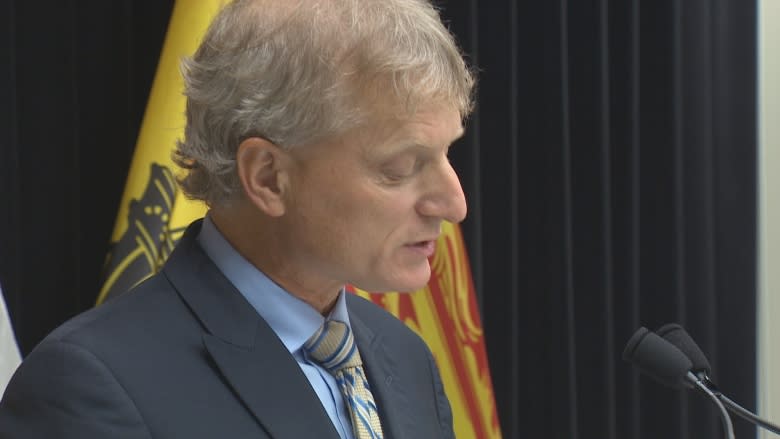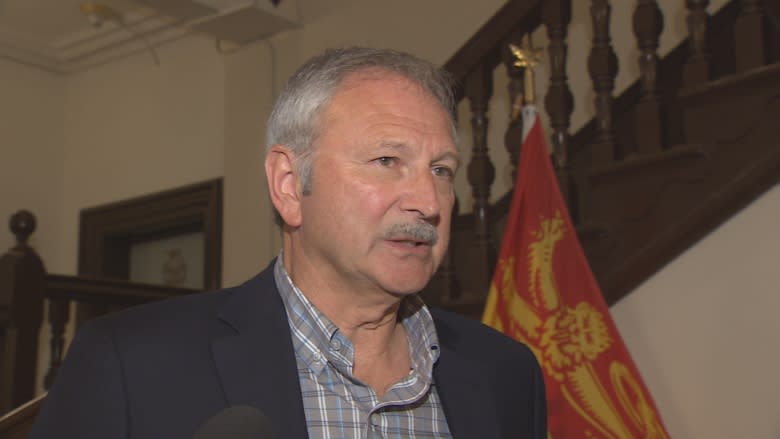Roger Melanson taps into contingency reserve as NB Power revenue falls
The New Brunswick government has tapped into its contingency fund as revenue expected to come from NB Power has fallen, according to the province's first quarter update.
Treasury Board President Roger Melanson released the fiscal update in Fredericton on Tuesday.
Melanson said the provincial government has decided to tap into the contingency fund and pull out $20 million.
"The contingency reserve is there to protect us against unforeseen events, including weakened revenue. That is why we are making use of the reserve at this time," said Melanson in statement.
The remaining $80 million is only for unexpected costs, Melanson said Tuesday.
"If we don't need it, we won't use it," he said.
If the $80 million dollars goes unused, the projected deficit would drop dramatically, to $262.4 million. If the reserve is used, the deficit would be $342.4 million.
Melanson's projection this quarter was therefore that range - a deficit somewhere between those two amounts, both of which sit below the projected deficit of $347 million released with the budget. That figure would be $247 million if the contingency reserve were not spent.
'Smoke and mirror reports'
But Progressive Conservative finance critic Blaine Higgs said the government's inability to nail down specific projections is an embarrassment.
"We have an $8.5 billion enterprise here in the province of New Brunswick, and we're not sure what the numbers are?" he said following the announcement.
He says the only reason the contingency fund exists is so that the Liberals can manipulate their numbers.
"We're seeing smoke and mirror reports, we're seeing trying to cover up the reality of our spending spree that is out of control, and we see our deficit situation getting worse."
Changes in revenue, spending
The fiscal update outlines the various changes in government spending and revenue.
"Our first-quarter update reflects new federal funding and related spending for investments in areas like affordable housing, post-secondary institutions, clean water and waste water," Melanson said in a statement.
"Aside from the new federal funding, our expenses are below budget, reflecting our ongoing commitment to managing spending and finances in a diligent manner."
New Brunswick received $23.1 million in conditional grants from various federal programs and $21.9 million in new federal funding for other infrastructure funds.
The fiscal update says return on investment is down $49.3 million, primarily because of a drop in revenues from NB Power.
HST increased on July 1
That projected deficit from earlier in the year is despite the province bringing in $300 million in additional revenue this year by increasing the Harmonized Sales Tax by two percentage points, putting it at 15 per cent.
The HST increase only took effect on July 1, so the first quarter results released by Melanson on Tuesday do not include that additional revenue.
New Brunswick has projected a deficit of $466.4 million in 2015-16. That figure includes the contingency fund of $150 million.
The province's net debt is forecast to increase to $13.4 billion by the end of the current fiscal year and the government has stated it is still years away from delivering a balanced budget.



